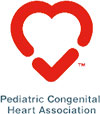Asklepion is studying citrulline for the prevention of clinical sequelae of acute lung injury in pediatric patients undergoing cardiopulmonary bypass for surgical correction of heart defects.
A randomized, double-blind, placebo controlled, multicenter Phase 3 study to compare the efficacy and safety of citrulline versus placebo in subjects undergoing surgery for congenital heart defects is currently underway.
To learn more about our clinical trial visit clinicaltrials.gov [IDENTIFIER: NCT02891837]

Citrulline is not a treatment for lung or other organ damage if it occurs, but it is being studied to determine if it helps prevent or lessens the severity of problems resulting from acute lung injury.
Children undergoing open-heart surgery for congenital heart problems are at risk for organ damage caused by the cardiopulmonary bypass (CPB) pump required for this type of surgery. For example, both the lung tissue and the blood vessels in the lungs can be damaged by cardiopulmonary bypass due to inflammation. Acute lung injury associated with cardiopulmonary bypass can lead to significant heart and lung problems after surgery.
The damage to the lung tissue and vessels are due to inflammation caused by cardiopulmonary bypass. The types of damage include:
- Increased fluid in the lungs that affects how well the lungs work. This is treated by placing a child on a ventilator, or automatic breathing machine, until the lungs are able to function properly again.
- The blood vessels in the lungs become constricted causing high blood pressure in the lungs. This means the heart has to work harder to pump blood to the lungs and the rest of the body. This is treated with medication to relax the blood vessels, so the heart doesn’t have to work so hard.
- The lung tissues themselves also become less flexible. This is treated with medicine and/or by placing the child on a ventilator (automatic breathing machine).
- All cardiopulmonary bypass patients are at risk for low cardiac output where the heart does not pump sufficient amounts of blood for the body’s needs. When this occurs, patients stay in the intensive care unit (ICU) for longer periods of time while receiving inotropic drugs to increase the ability of the heart to contract and thus to pump more blood.
Background
Researchers at Vanderbilt University found that cardiopulmonary bypass significantly decreased blood levels of citrulline, which compromised the ability to make an important blood vessel dilator, nitric oxide, during surgery and in the postoperative period. They hypothesized that decreased availability of citrulline to make nitric oxide precursors might contribute to the increased risk of postoperative pulmonary hypertension1. Further research suggested that citrulline supplementation may increase plasma citrulline and arginine concentrations resulting in better post-surgery outcomes. 2 , 3
Additional Resources for Caregivers and Patients:

National Heart, Lung, and Blood Institute of the National Institutes of Health (NIH)
Watch this video made by the National Heart, Lung, and Blood Institute of the National Institutes of Health (NIH), featuring clinical researchers, doctors, and nurses addressing commonly asked questions from parents and caregivers when considering enrolling a child in a clinical study.

The Children’s Heart Foundation
The Children’s Heart Foundation is a not-for-profit organization that funds research to advance the diagnosis, treatment and prevention of congenital heart defects.

Pediatric Congenital Heart Association
Pediatric Congenital Heart Association supports both Federal Research, as well as privately funded organizations, by advocating for funding and working with individual agencies to ensure that their efforts remain directed at meeting the needs of the patient community.
2 Smith, Heidi AB, Jeffrey A. Canter, Karla G. Christian, Davis C. Drinkwater, Frank G. Scholl, Brian W. Christman, Geraldine D. Rice, Frederick E. Barr, and Marshall L. Summar. “Nitric oxide precursors and congenital heart surgery: a randomized controlled trial of oral citrulline.” The Journal of thoracic and cardiovascular surgery 132, no. 1 (2006): 58-65.
3 Barr, Frederick E., Rommel G. Tirona, Mary B. Taylor, Geraldine Rice, Judith Arnold, Gary Cunningham, Heidi AB Smith et al. “Pharmacokinetics and safety of intravenously administered citrulline in children undergoing congenital heart surgery: potential therapy for postoperative pulmonary hypertension.” The Journal of thoracic and cardiovascular surgery 134, no. 2 (2007): 319-326.

